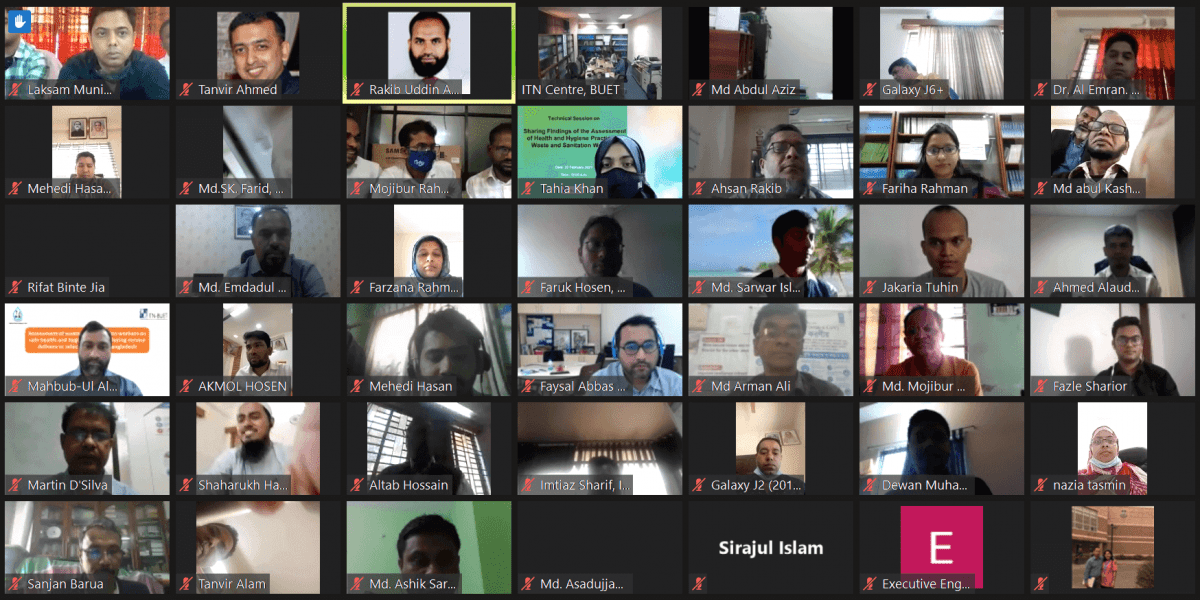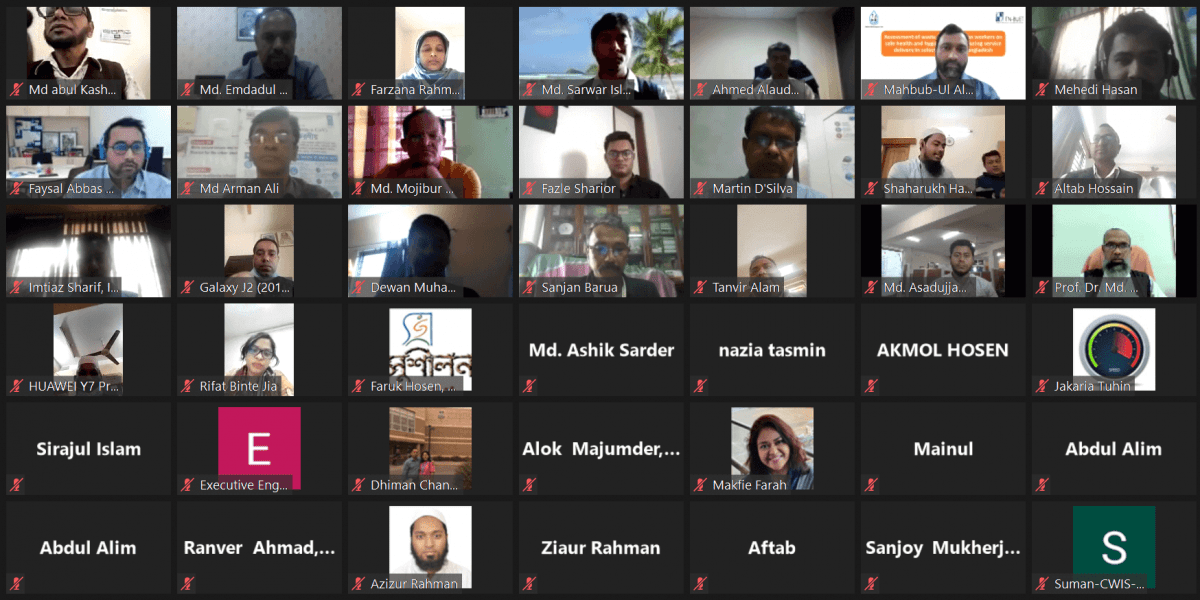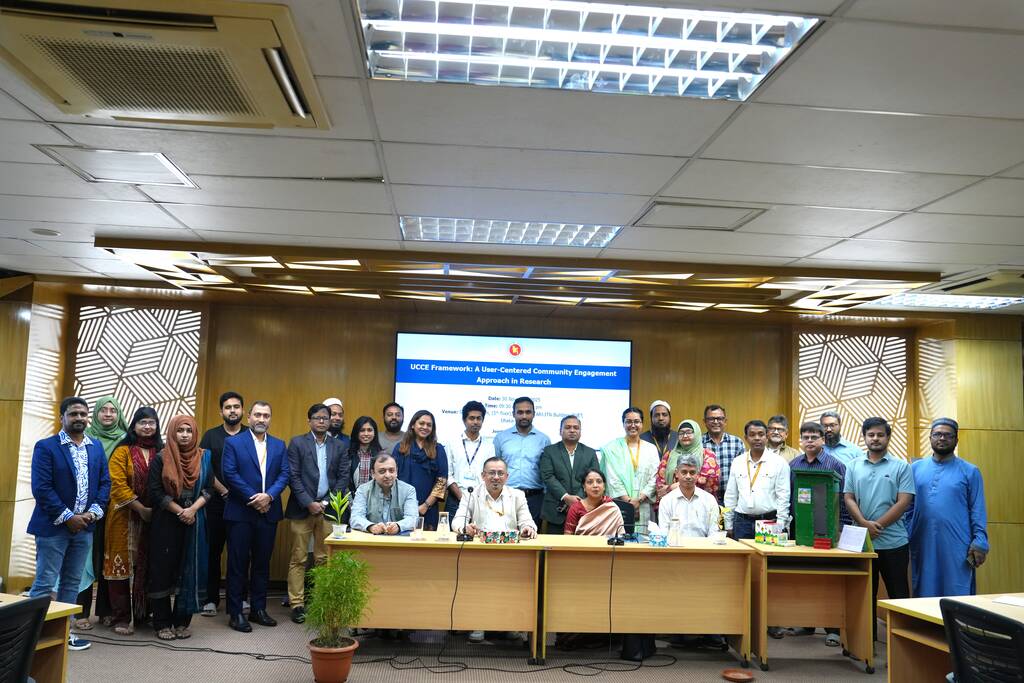80% of waste and sanitation workers do not have any occupational health and safety training for preventing infection; whereas sufferings from various infectious diseases due to their occupational exposure are common among this group, revealed by a study finding by ITN-BUET.
ITN-BUET organized the technical session to disseminate the findings of the study on “assessment of waste and sanitation workers on safe health and hygiene practice during service delivery in selected cities of Bangladesh” on February 22,2021. The event was held online with around 70 participants including officials from the Local Government, municipalities, private sector, I/NGO, and research and academic institutes.
The study, conducted by ITN-BUET in association with CWIS-FSM Support Cell, DPHE, targeted 499 waste and sanitation workers, including pit-emptiers, solid waste collectors, medical waste handlers, road sweepers, and drain cleaners from 10 cities (3 city corporations and 7 municipalities). LGI officials from these cities also shared their views on hygiene practices by waste and sanitation workers in their respective cities.

The session started with an introduction and objective sharing from Dr. Tanvir Ahmed, Professor, Civil Engineering Department, BUET, and Director of ITN-BUET. He said, “the COVID-19 pandemic has despicably exposed the vulnerable working condition of our waste and sanitation workers, making the situation more grave considering the essential role they play as front-line workers. Dr. Ahmed pointed out that this baseline study would help us realize this situation and provide a background for future training and awareness-raising programs.
Mr. Mahbub Ul Alam, the lead researcher of the study, gave a brief presentation on the study findings. The study showed that, out of 499 waste workers, 80% of women are more likely to maintain safety guidelines during work, whereas the ratio is 58% for men. The study highlighted the unhygienic living condition of the front-line workers, which questions their scope for practicing safe hygiene. Another interesting finding of the study was that the adherence of the workers to safety guidelines is higher in municipalities (38%) than in city corporations (22%).
Mr. Md. Emdadul Hoq Chowdhury, Joint Secretary of PSB and Dr. Farzana Rahman Zuthi, Professor of CUET, were present as distinguished panelists in the session. Mr. Chowdhury focused on the job security, education, family welfare, and health of the front-line workers. He suggested engaging the private sector to outsource such services and building their capacity to safeguard waste and sanitation workers. Dr. Zuthi emphasized the practical usage of data for both academic and development purposes. She suggested that we need to be aware of our roles as sector partners to create the necessary awareness and behavioral change that is needed to ensure the health and safety of our front-line workers.

Participants shared some more recommendations during the open discussion session. Their recommendations addressed issues such as gender-based data collection, job insecurity and sexual harassment faced by the female worker, the male-female ratio in the workforce, PPE suitability for female and male, changes required in organogram, capacity building initiatives on IPC, PPE, improved hygiene practice and so on.
Mr. Alauddin Ahmed, Project Manager of ITN-BUET, concluded the session by thanking all the participants, panelists and the research team for making the event successful. He hoped that the sector partners will use the study findings to improve the health hygiene practice and behavior among waste and sanitation workers.





